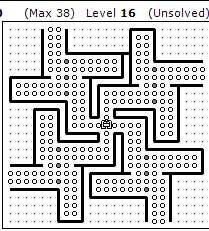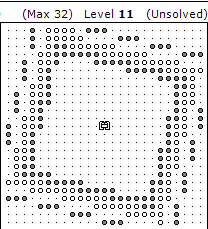Iris
Technologies - C++, Qt, CMake, itk, svn, XML, python

Iris is a tool for image mosaicking and slice-to-slice registration. It's a user interface for existing tools called the Image Reconstruction Tools (ir-tools). These tools have been used in the first full connectome of a rabbit retina in TEM. Iris is going to replace the pipeline for the next connectome. And is currently being used on a connectome of a makak monkey brain. It is one of the projects I am on at the SCI Institute (University of Utah). Iris (as well as the ir-tools) are freely available at UNCIA.
Iris is a piece of software I am very proud of. It has forced me to learn the entire software development process from beginning to end. I've worked on everything from design and development to testing and deployment. I've learned more about the ins and outs of software development from this single project than any other projects I've worked on.
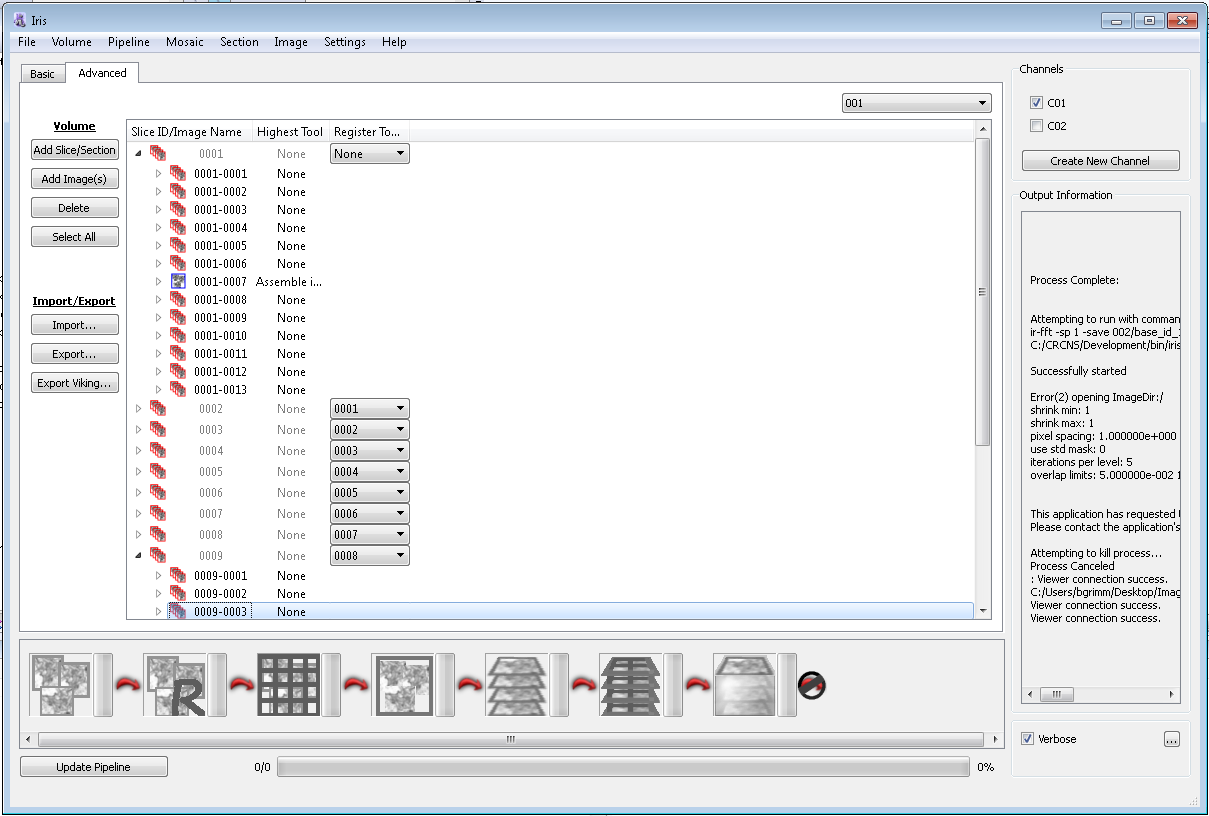

Web Development
Technologies - Flex, php, python
While at the University of Utah I've also had the pleasure to work on a Scientific Dashboard website. This has given me the chance to work with web services and flex. Because of its nature being different from other projects it's been a great opportunity to learn and excel. We wrote a paper on new visualization methods that dealt with contour trees.
The Tale of Despereaux
Technologies - C++, Wii, Xbox 360, PS2
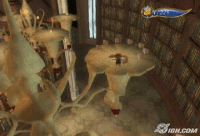
The Tale of Despereaux was the first console game I worked on. It released on the Wii, PC, and PS2. An Xbox 360 version was also completed and accepted, but never released to the public since the publisher, Brash Entertainment, filed bankruptcy. A number of other legal issues arose due to Sensory Sweep management, the company I worked for. Due to the legal issues and the nature of video game development hours and procedures, I decided to leave for greener pastures.
I was primarily in charge of many of the game mechanics, as well as the Wii platform. While the game didn't receive as high scores as we would have liked (mostly due to a short timeline and the publisher changing their mind often). The project as a whole was an extremely valuable experience. I learned much about 3D math and physics, as well as the more particular points of developing for multiple platforms and working with a larger team.
One of the neat pieces of information I learned while working on The Tale of Despereaux was how to debug really efficiently. I became quite proficient with Visual Studio and with many of its more intracet features.
Java Development
Technologies - Java, jsp, pdf, eclipse
Before working with video games I worked for the financial planning company SunGard. While there my responsibilities included building the jsp interface to the Java code. Toward the end of my time there I also was working on the new pdf serializer code that was built to be much faster then their previous solution. All in all I really enjoyed working there but moved later when given the opportunity to seek after video game development which had been a passion of mine for years.
Alien Xenocide
Technologies - C++, DirectX
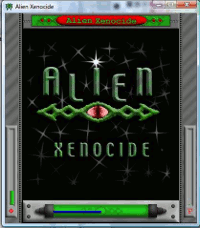
Alien Xenocide was my first fully complete game. I developed during my high school years and the project was off and on. It's an extremely short and fun game. The game consists of 10 levels where at the end of each level you can upgrade your vehicle to be more powerful. If you beat the end of the game, the game starts over at level one with all the enemies being slightly stronger.
How many times can you get through the game? My best was to the very end of the 3rd time. The link can be found here... http://www.caiman.us/scripts/fw/f2384.html
Algorithm Contests
Technologies - C++, Java, C#

I've competed in a number of Algorithm Contests over the past few years. The two contests that I enjoy the most are the Microsoft Imagine Cup and Topcoder. Their styles are fairly different. The Imagine Cup focuses primarily on multiple rounds that span multiple months. Each round ends up taking many hours and usually the winners are both skilled and have put in many hours of work. Topcoder takes a different approach where a round lasts only an hour and a half. Each round is focused on speed and skill.
In the Imagine Cup I've competed for the 2008 and 2006 years. I was ranked as the top placed american in the Algorithm Contest for both years. Overall I was ranked 15th in 2006 and improved my rank to 14th in 2008. The contest has changed to be the Robotics and Algorithm contest, and I was excited to try my hand at the robotics side of things, but they discontinued it in 2010.
A video of my farming algorithm can be found here. It's a little fast and is better viewed frame by frame. The idea is to keep the environment as cool as possible (green). In this case there are only two cooling agents, so they've got a lot stacked against them. As well as a couple of images of Herbert, a small robot we designed to collect white dots.
